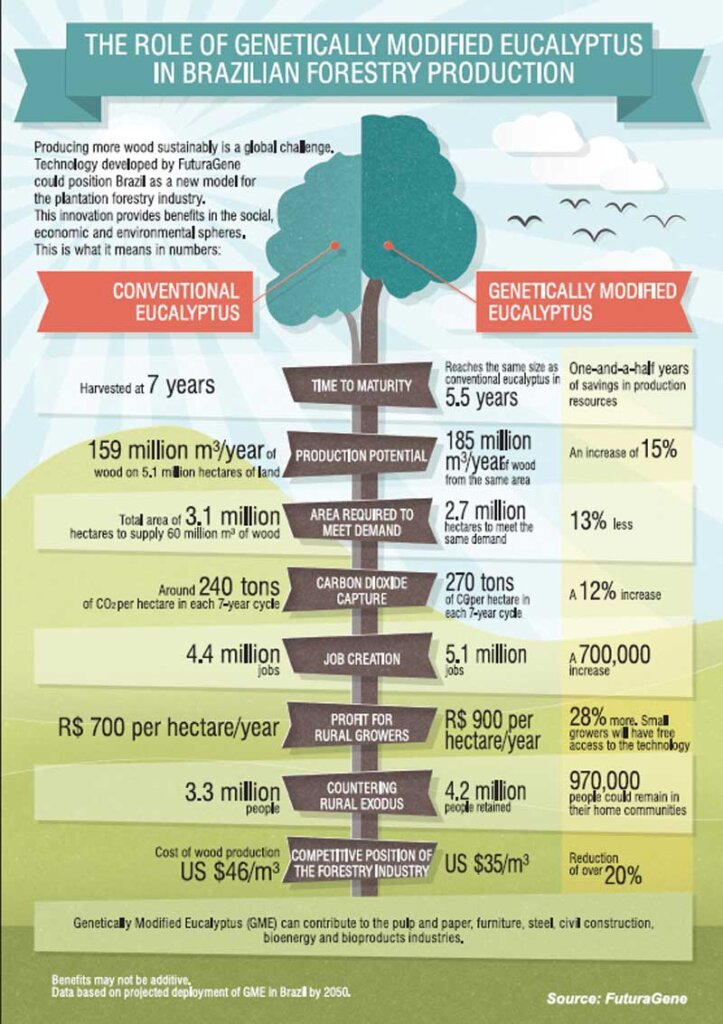Field experiments have demonstrated an approximate 20 percent increase in yield

Brazil has become the first jurisdiction worldwide to permit the commercial use of FuturaGene’s genetically engineered eucalyptus. The Brazilian National Technical Commission on Biosafety (CTNBio) approved the commercial use of the yield-enhanced eucalyptus developed by FuturaGene, a wholly owned subsidiary of Suzano Pulp and Paper. According to the company, field experiments conducted since 2006 at various locations in Brazil have demonstrated an approximate 20 percent increase in yield compared to its equivalent conventional variety.
The company says this approval represents the most significant productivity milestone for the renewable plantation forest industry since the adoption of clonal technology in the early 1990s. This approval enables the production of more fiber using less resources.
An impact study produced last year by Pöyry Silviconsult forecasts the potential gains of applying the genetically engineered eucalyptus technology to the entire Brazilian eucalyptus plantation area by the year 2050. It concludes that this variety of eucalyptus will be ready to harvest in 5.5 years compared with the seven-year harvest of conventional eucalyptus on Brazilian forestry plantations. Consequently, it will require 13% fewer hectares to meet the same wood demand as existing crops.
The decision of CTNBio is opposed by The Campaign to STOP GE Trees. That group quotes geneticist Dr. Ricarda Steinbrecher, co-director of EcoNexus and member of the Federation of German Scientists, who explains that GE trees are likely to cross national borders due to their large-scale dispersion of reproductive material. This, she points out, violates the 2008 decision on GE trees made by the UN Convention on Biological Diversity, to which Brazil is a signatory.
Subsequent to the approval, Suzano and FuturaGene will expand the field testing of the yield enhanced eucalyptus in a graded and responsible manner, according to company sources.



